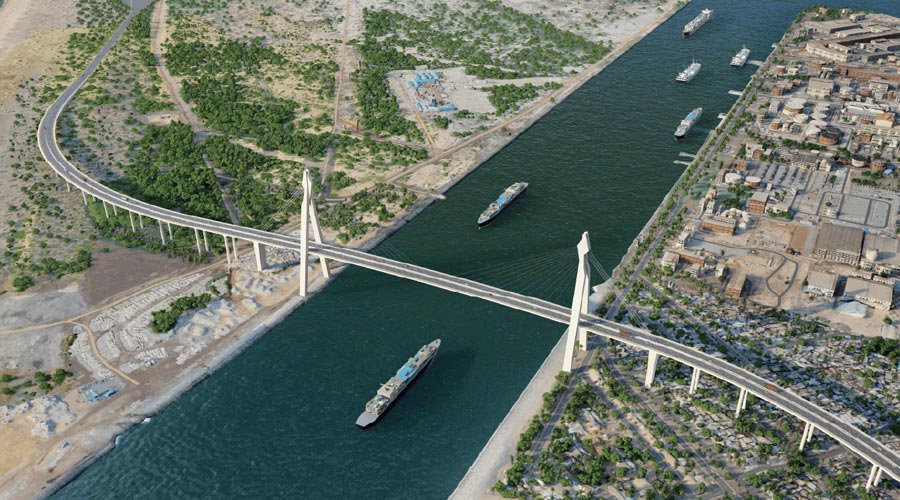A major project
for mobility in Abidjan
Supported by the MCA (Millennium Challenge Account), the "Abidjan Transport Project" (USD 292 million) aims to make the city of Abidjan more competitive as one of the country's growth centres by improving traffic flow and relieving congestion on the city's central corridor linking its port to the north, east and west of the country. The project comprises two activities, including a transport infrastructure activity.
The latter will focus on rehabilitating almost 32 kilometres of roads and critical infrastructure on the following routes:
- Boulevard Valéry Giscard d'Estaing - 9 km
- Boulevard du Port / Boulevard de Vridi / Boulevard de Petit Bassam - 8 km (including rehabilitation of the Vridi bridge)
- Boulevard de la Paix - 7 km
- Yopougon expressway - 8 km
The Greater Abidjan conurbation is expanding mainly to the north and east. The Ivorian government is planning to build a structure to cross the Vridi canal, which would open up almost 15,000 hectares to urban development in the south-west of the city. This would rebalance the urban development of Abidjan, provide the autonomous port of Abidjan with land that could be developed for its future needs (commercial quays, mineral port, industrial zones - even the creation of a free port, etc.) and contribute to the major pan-African coastal link from Dakar to Lagos. The central section of the structure designed by PFO Construction consists of a 740-metre-long cable-stayed bridge supported by two 190-metre-high, 250-metre-wide pylons. This will allow the largest container ships to pass through. The bridge deck will carry three lanes of traffic in each direction, with separate passageways for pedestrians and cyclists. One lane in each direction will be reserved for buses, with the possibility of dedicating it to trams at a later date. Access on either side will be via 200-metre ramps, followed by 900-metre viaducts, giving a total length of 3,000 metres. The project also includes connections to existing traffic routes.
The missions
carried out by Apave


In order to carry out the various vertical cores in the spans of the bridge deck without damaging the reinforcement, AGTS called on Apave International's Major Project unit to provide its expertise and equipment (Radar and Ferroscan) for this investigation. The core sampling enables the AGTS laboratory to determine the strength of the concrete.
AGTS also determined the degree of carbonation, installed crackmeters and carried out a detailed inspection of the damage to the bridge.
The AGTS Ivory Coast team, led by Thierry Sombié, with project manager Sadiatou Ouedraogo, diagnostics specialist Innocent Yao and Apave International's Major Project structure expert Guillaume Larrue, performed the mission brilliantly.
Discover our
news
